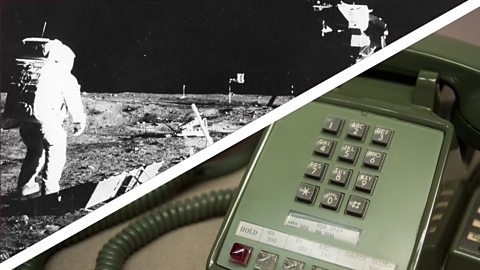“What's in a name? That which we call a rose, by any other name would smell as sweet.”
In the classic Shakespeare play, Juliet makes the point to Romeo that the convention of naming things holds no real relevance.
But the choice of name for a child truly does matter as they’re likely to be stuck with it for the rest of their lives. And in some countries, there are certain names that are outright banned for being embarrassing, offensive or even unpatriotic.
BBC Bitesize takes a look at some of the forbidden baby names that weren’t allowed.
France: No embarrassing names
It’s fairly normal for parents to want to choose a name with meaning – but less common for that name to be based on a favourite snack.
But a family in France attempted to name their child Nutella.

In 2015, a judge in Valenciennes in northern France refused to allow a child to be named after the spread. They expressed concerns over the use of a trademark, but ultimately decided the child couldn’t be given that name because of the risk of humiliation.
When the parents refused to attend the court hearing, the judge ordered the child be named Ella instead.
While the choice of a name that is a trademarked brand wasn’t the main concern in this case, other countries have banned similar attempts – with names such as Mercedes or Chanel banned in Switzerland.
Sweden: No names which are obviously not names
In Sweden, there are strict guidelines around what you can or can’t call your child – again with the aim of preventing any embarrassment for the child.
So, it’s not surprising to learn that the name Brfxxccxxmnpcccclllmmnprxvclmnckssqlbb11116 was not approved.
In 1996, a Swedish family chose this unusual, 43-character name for their son – to be pronounced, Albin – in protest after they were fined for not registering his name before his fifth birthday. When that was rejected, they then tried to register the name A – again pronounced Albin – which was also turned down. In the end, they relented and named him Albin.
The names Metallica, Superman, Veranda and Ikea have also fallen foul of the Swedish naming laws.
New Zealand: No official titles as names
In New Zealand, the embarrassment rule comes into play again, but there are several other considerations when it comes to approving names.
Any name that might include or resemble an official title or rank is forbidden – and one of the most common of these is Justice.
As a formal title for a judge, that name is banned, alongside Saint, Bishop, Knight and Mr.

The other rule for names is that they mustn’t be unreasonably long or without justification. So a case in 2008 prompted some surprise that it had slipped through the net.
During a custody case for a then nine-year-old girl, a judge discovered that she had been named Talula Does the Hula From Hawaii – a name that, quite reasonably, she hated so much that she never told anybody what she was really called.
The judge allowed her to change her name – with a severe admonishing for her parents.
Japan: No names that might humiliate
One name choice in Japan in 1994 was so controversial, it led to a heated debate in a Japanese Cabinet meeting.
A family decided they wanted to call their baby boy Akuma - which literally means devil. The father said he chose the name because he wanted his son to stand out with an unforgettable and completely unique name.
Initially, the name was accepted before officials challenged it, feeling that the name would lead to discrimination.

The name was considered so controversial that members of the Japanese government commented on it and the morality of whether the state should be allowed to intervene in naming matters became a nationwide debate.
Eventually, the family backed down after a lengthy legal battle.
Portugal: No Toms allowed
The world has undeniably been improved by Toms – Jones, Holland, Hardy and Hanks to name a few – but the name is completely forbidden in Portugal.
This is not because of a hatred of Spider-Man or Forrest Gump – but because names in Portugal are required to take traditional Portuguese spellings.
The government has a list of pre-approved names that all new parents must choose from. So while Tom is out, Tomás is allowed.
Exceptions to the naming rules are made for families where one of the parents is not Portuguese, or holds dual citizenship, but still with one caveat – that the name is permitted in their home country. So if you’re a French hazelnut spread fan, you still won’t be able to get away with the name in Lisbon.
This article was published in January 2024
Four things that turn 100 in 2024
The Winter Olympics and TV pictures are about to hit their century

Record-breaking long careers in history
We take a look at some people who enjoyed their jobs so much, they just kept on working in their dream roles.

Four incredible phone calls in history
From the first ever call to one out of this world, BBC Bitesize takes a look at iconic phone calls in history
